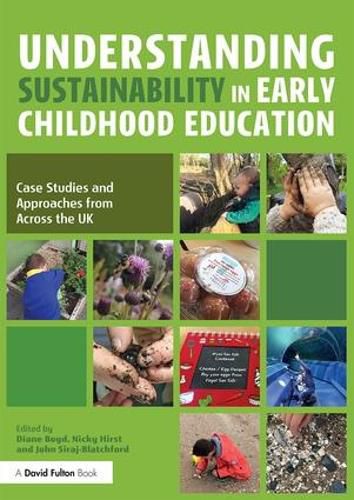Readings Newsletter
Become a Readings Member to make your shopping experience even easier.
Sign in or sign up for free!
You’re not far away from qualifying for FREE standard shipping within Australia
You’ve qualified for FREE standard shipping within Australia
The cart is loading…






This unique book explores research related to education for sustainability within early childhood education in the United Kingdom. Divided into the four home nations, it examines what education for sustainability looks like in practice, discusses the different application and positions of each region, and considers the contribution of early childhood education to support the Sustainable Development Goals.
Each chapter considers the relevant early years framework and includes associated case studies which highlight connections between statutory guidance, policy and positive early years pedagogical practice. The authors use an education for sustainability lens to explore the critical issues and explicit and implicit links embedded in each of the curricula frameworks. Each chapter acknowledges the context of outdoor learning with discussion related to different interpretations of ecological sustainability. This exploration should help readers to consider the idea of sustainability within early childhood education.
The book considers early childhood education as a distinct and valuable phase beyond the readiness for school discourse and recognises the importance of having skilful and knowledgeable adults to work with young children from birth. It offers a unique resource for students, practitioners, leaders and researchers engaged in the study of education for sustainability in early childhood and the importance of the early years for the development of life-long pro-environmental attitudes.
$9.00 standard shipping within Australia
FREE standard shipping within Australia for orders over $100.00
Express & International shipping calculated at checkout
This unique book explores research related to education for sustainability within early childhood education in the United Kingdom. Divided into the four home nations, it examines what education for sustainability looks like in practice, discusses the different application and positions of each region, and considers the contribution of early childhood education to support the Sustainable Development Goals.
Each chapter considers the relevant early years framework and includes associated case studies which highlight connections between statutory guidance, policy and positive early years pedagogical practice. The authors use an education for sustainability lens to explore the critical issues and explicit and implicit links embedded in each of the curricula frameworks. Each chapter acknowledges the context of outdoor learning with discussion related to different interpretations of ecological sustainability. This exploration should help readers to consider the idea of sustainability within early childhood education.
The book considers early childhood education as a distinct and valuable phase beyond the readiness for school discourse and recognises the importance of having skilful and knowledgeable adults to work with young children from birth. It offers a unique resource for students, practitioners, leaders and researchers engaged in the study of education for sustainability in early childhood and the importance of the early years for the development of life-long pro-environmental attitudes.